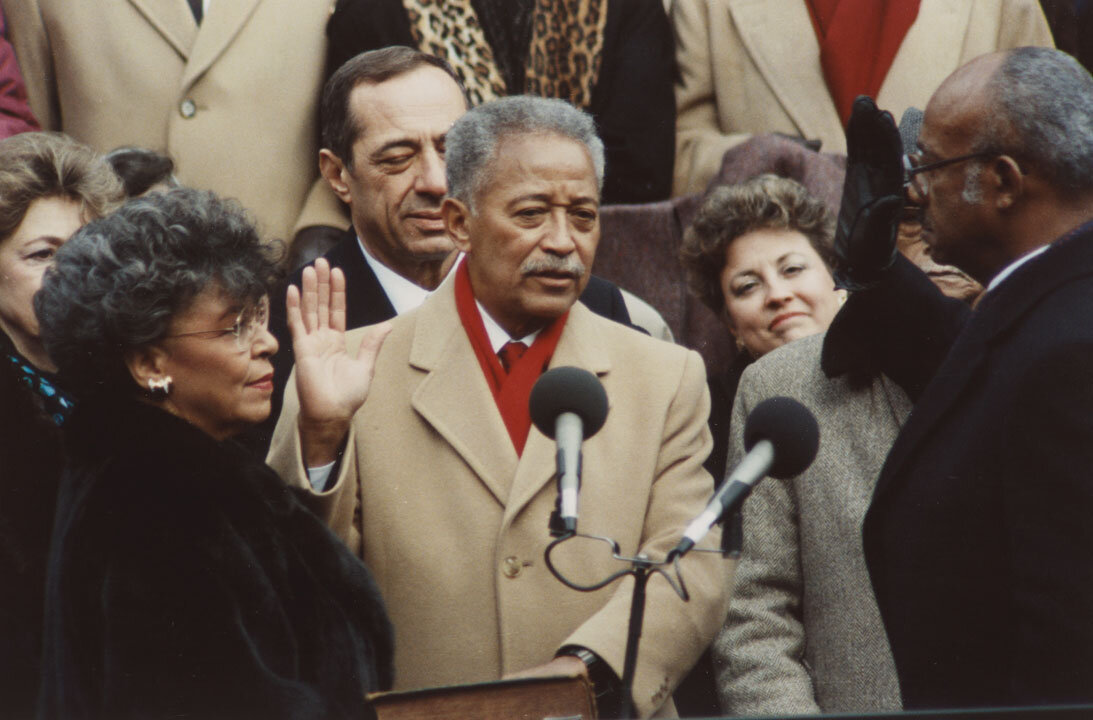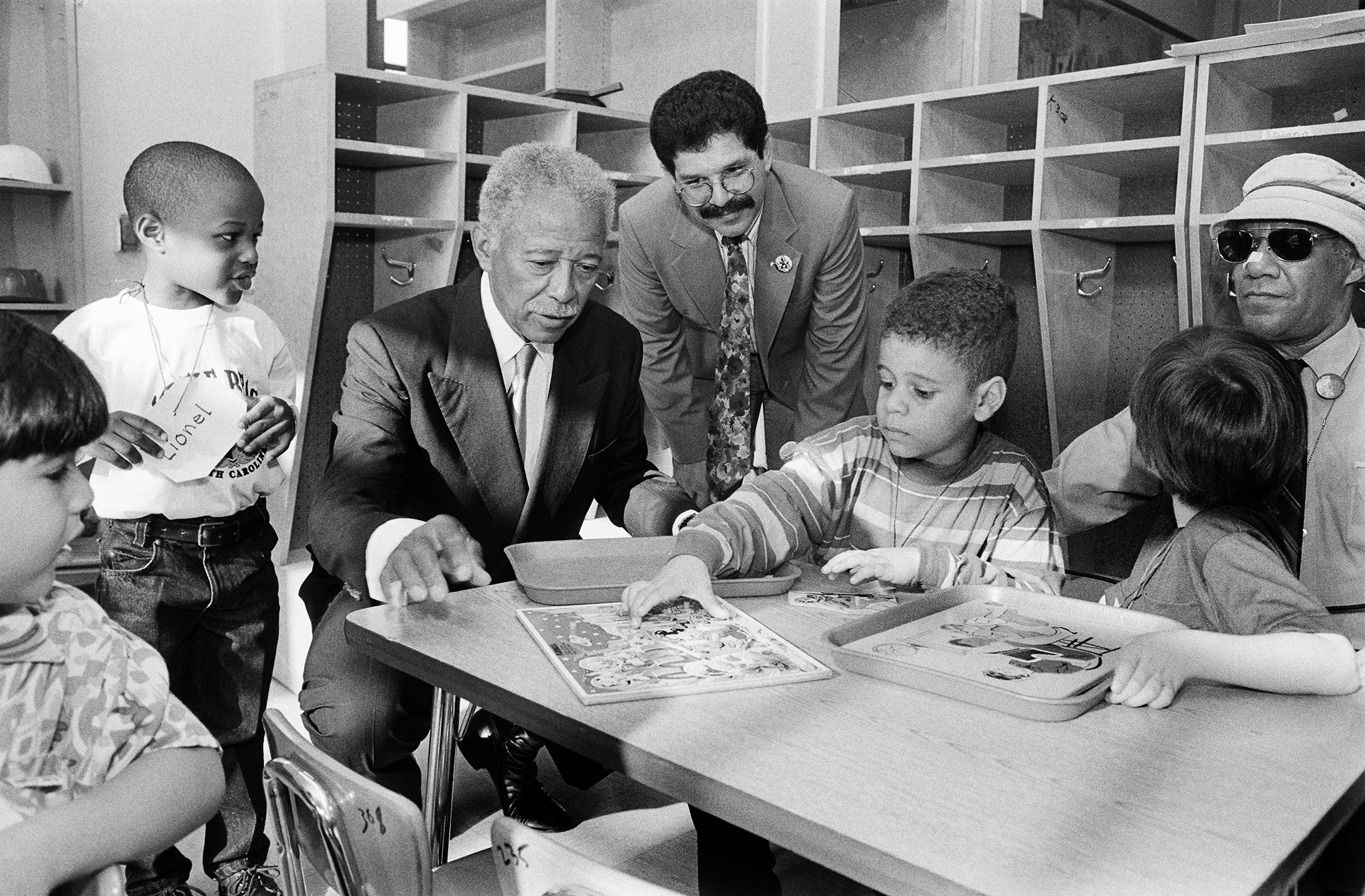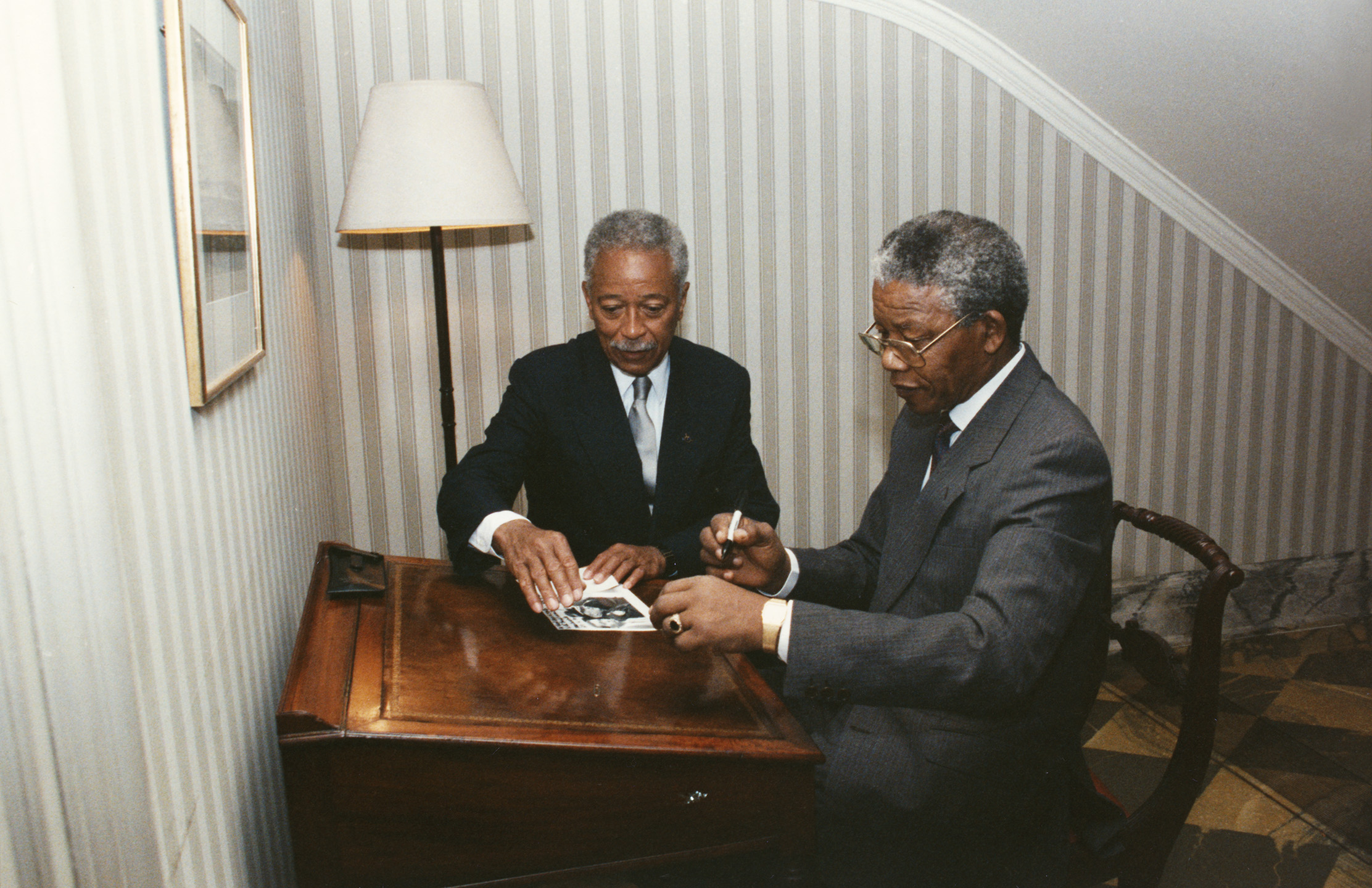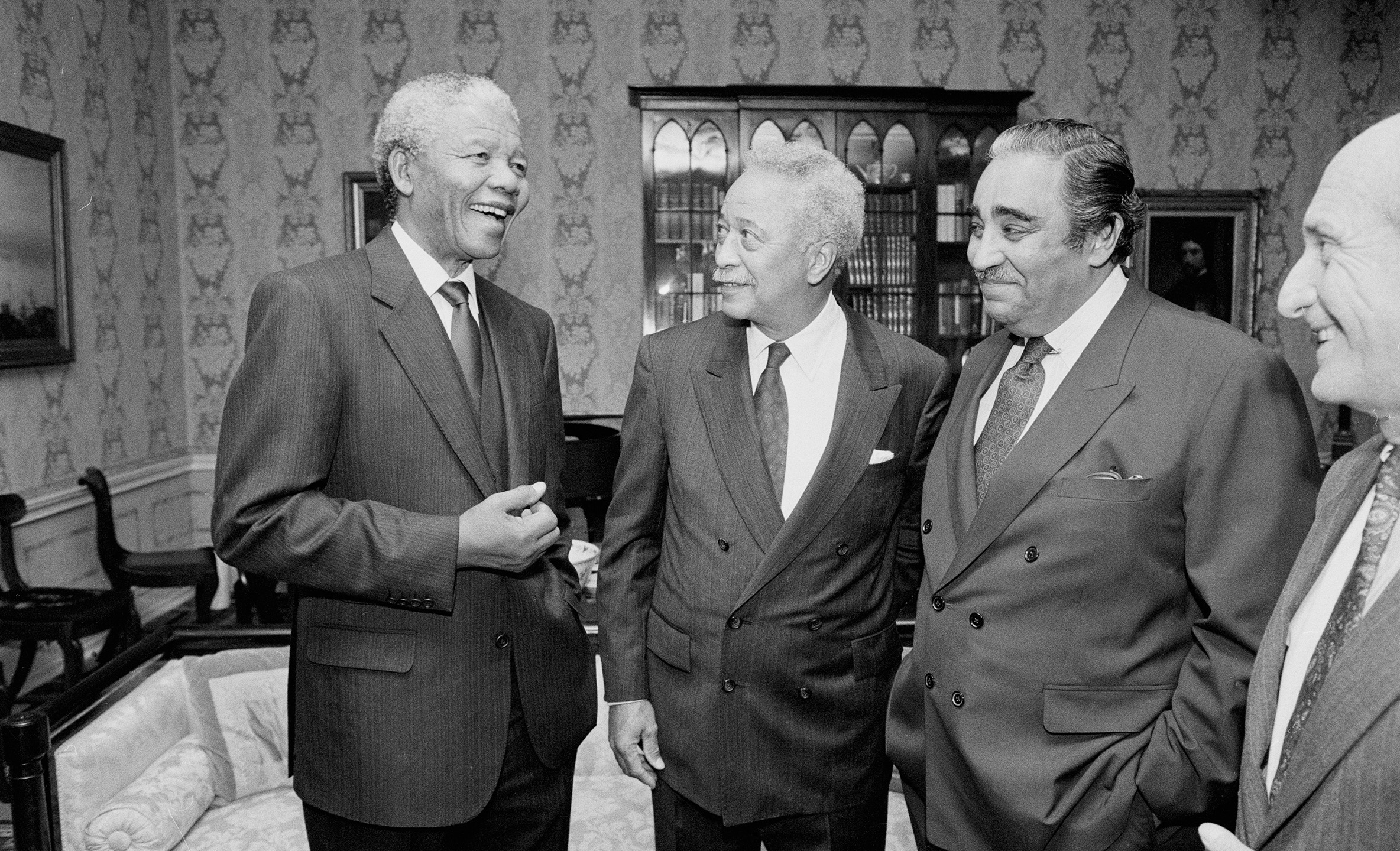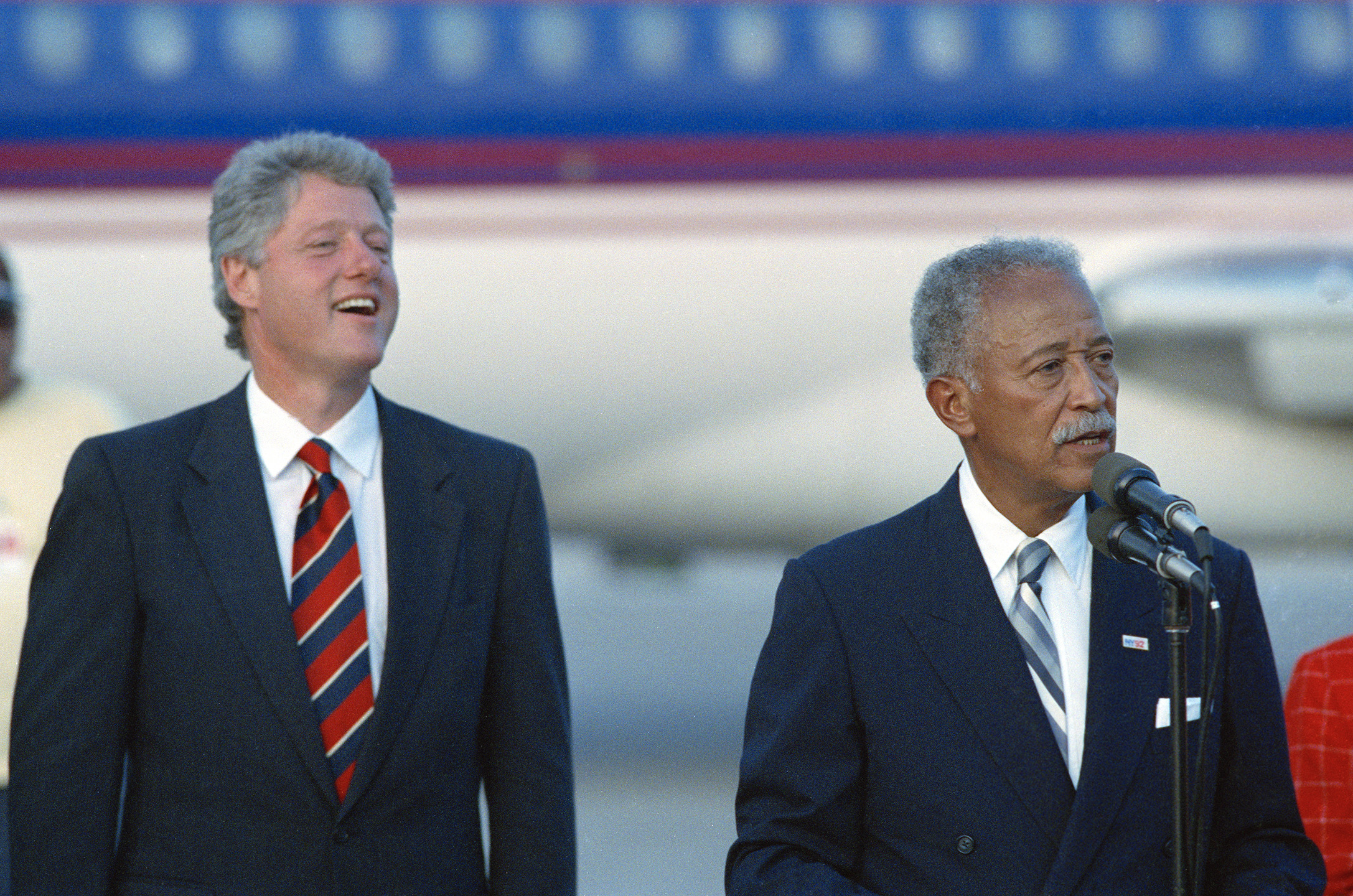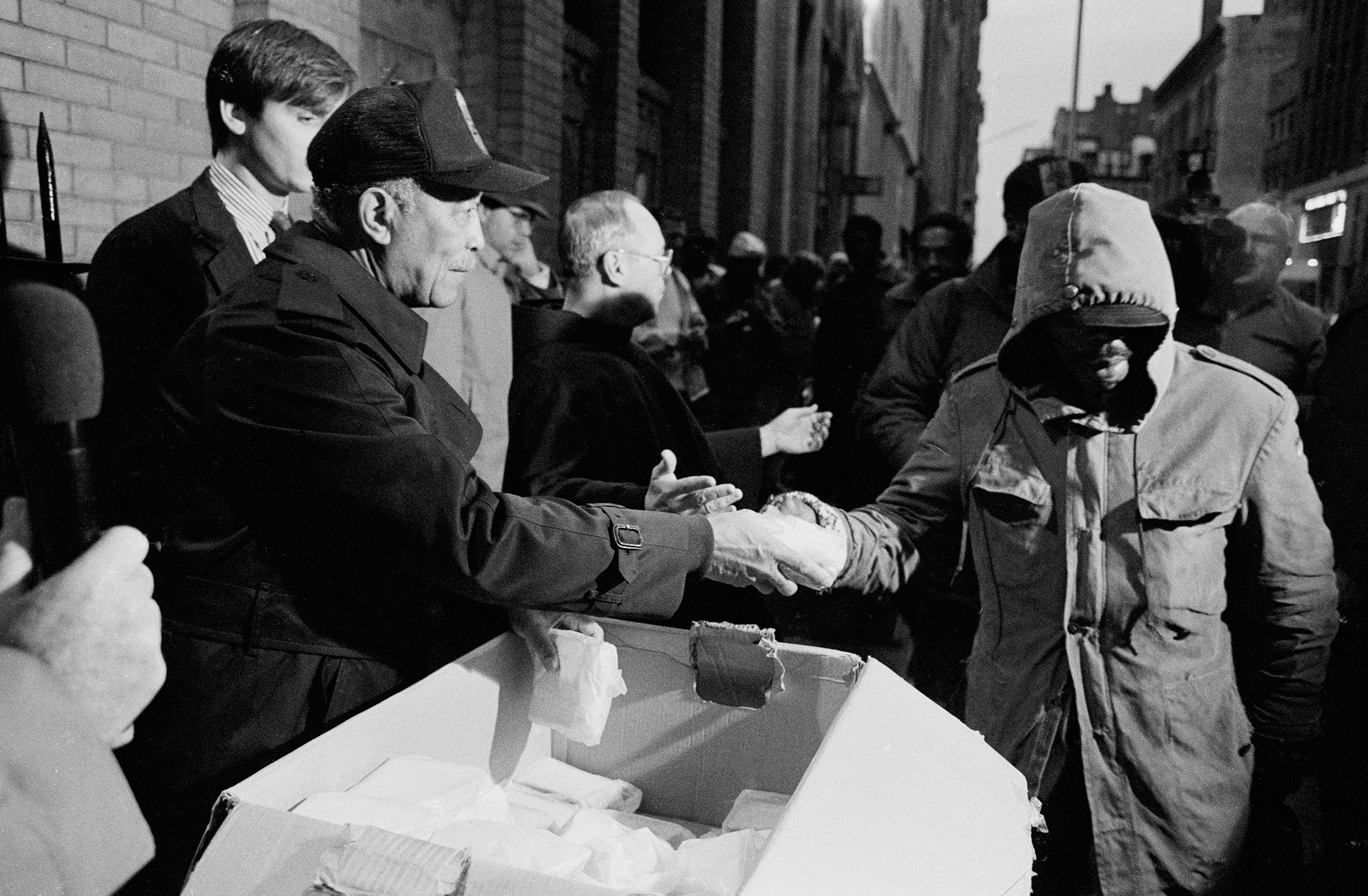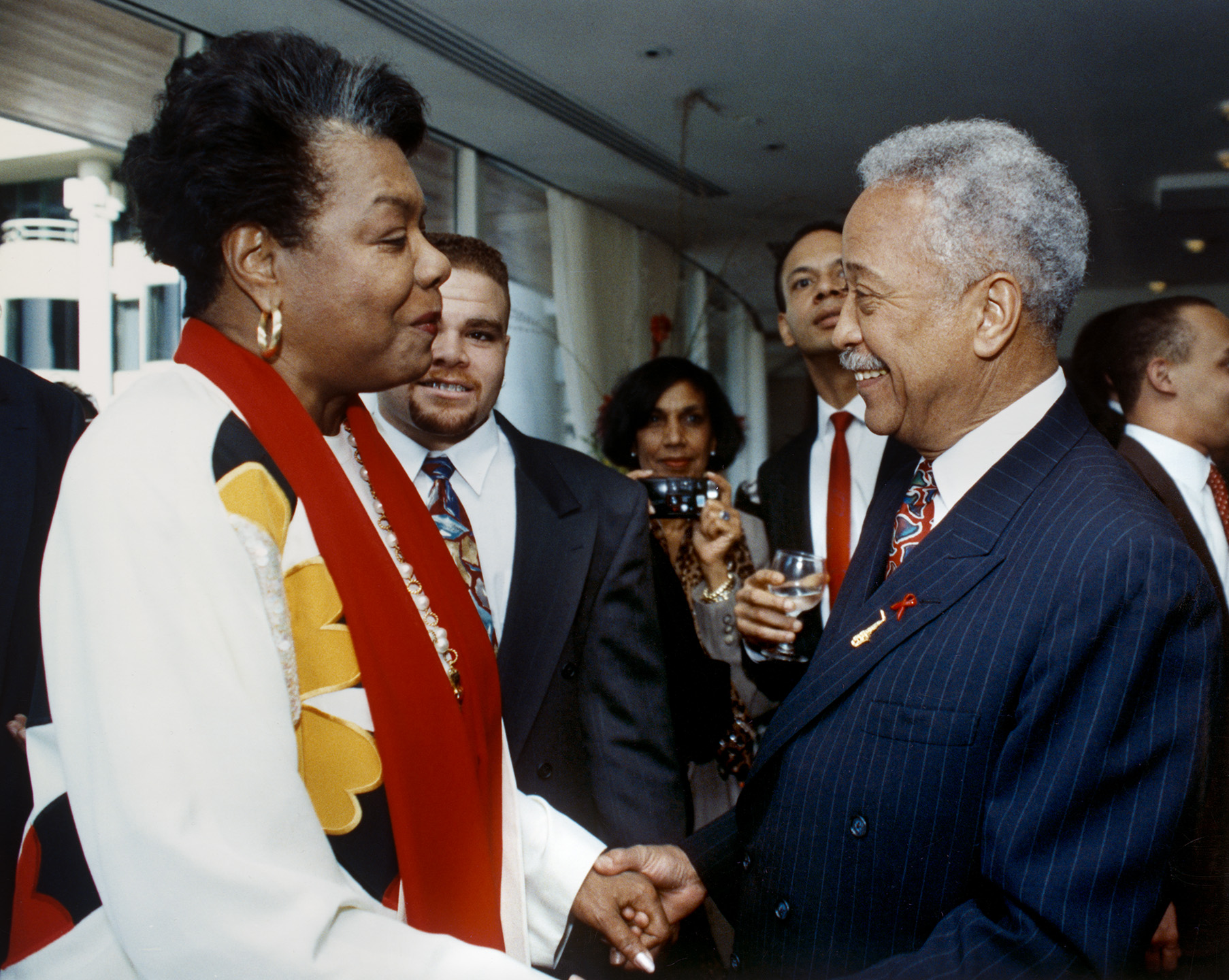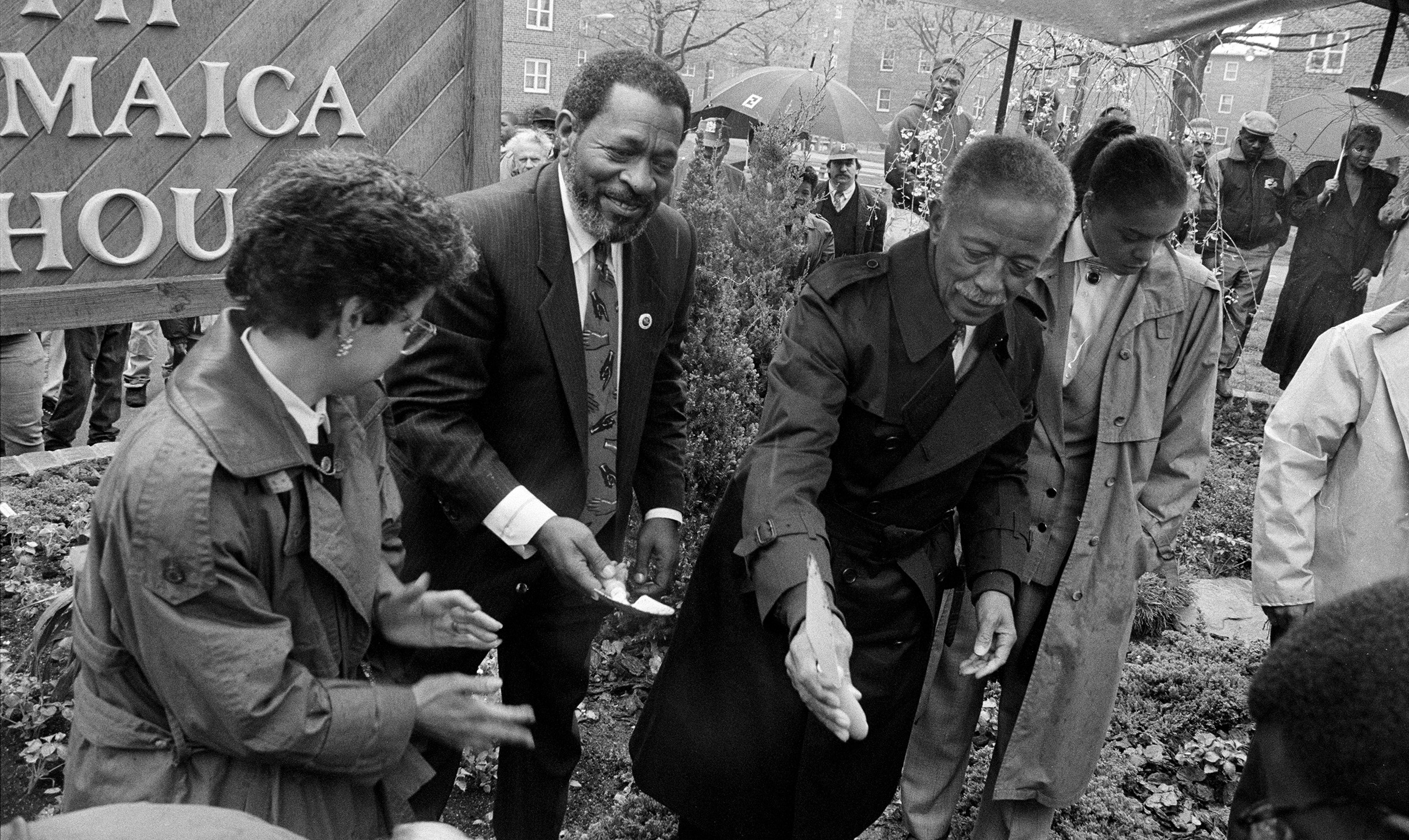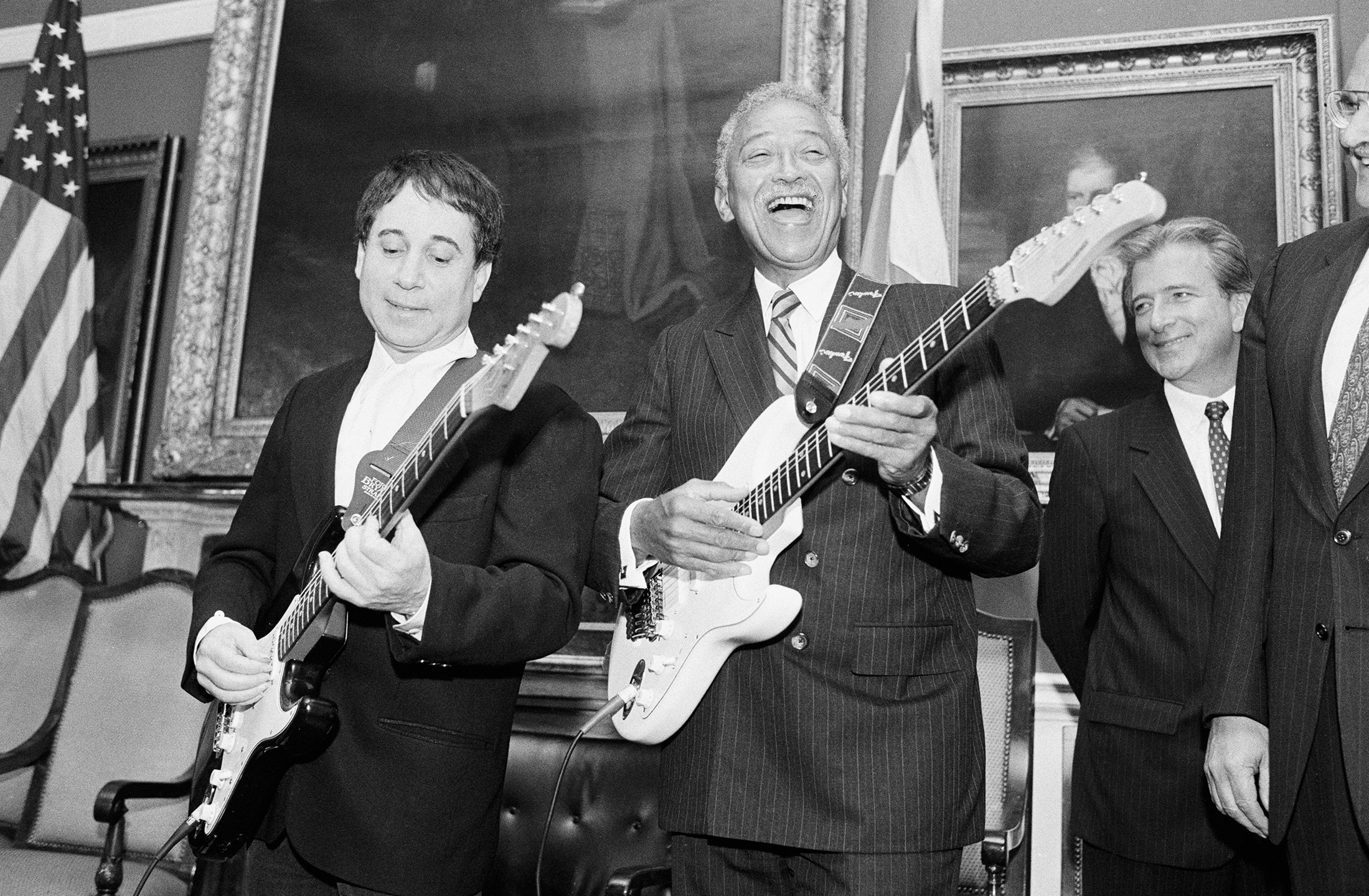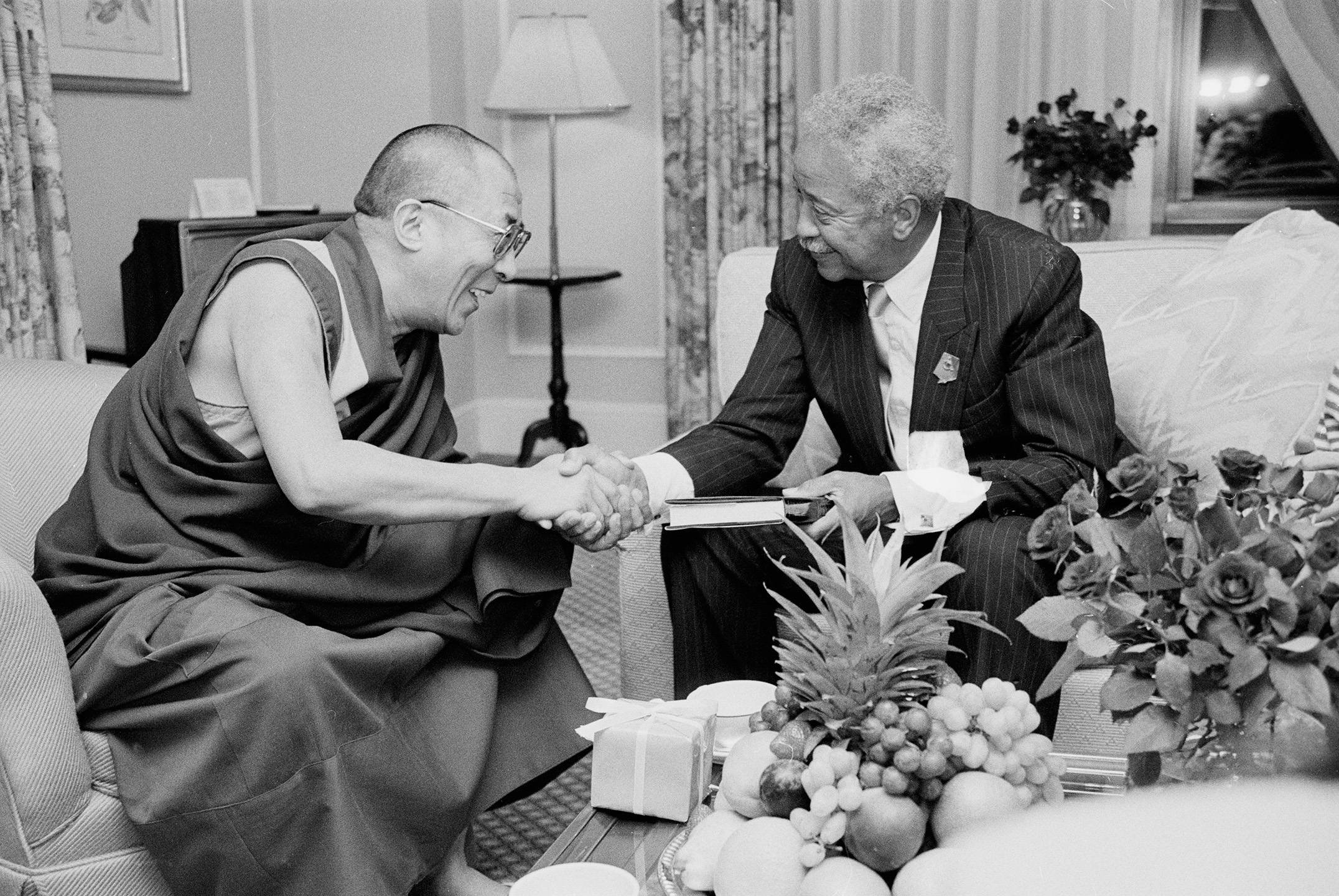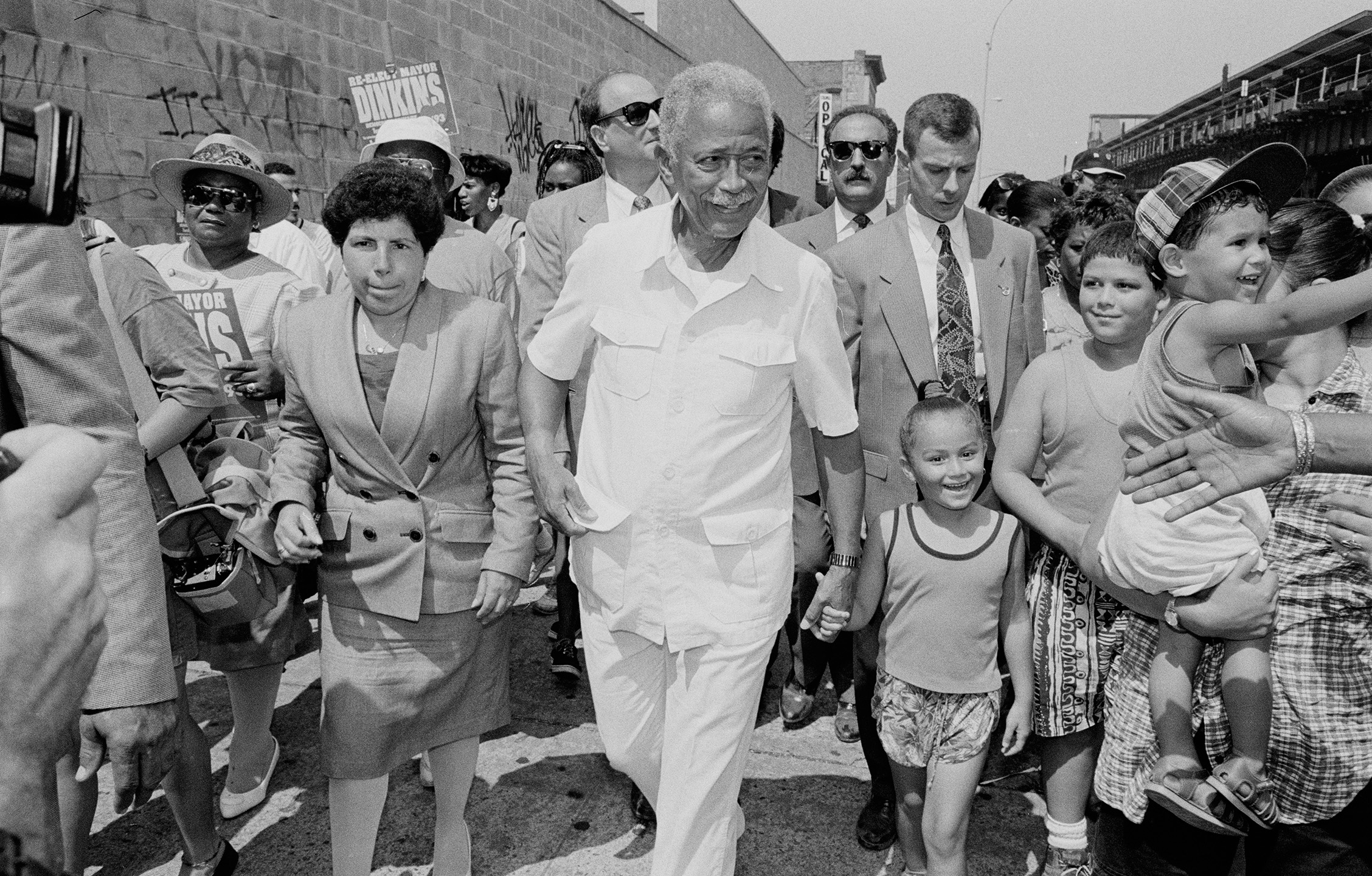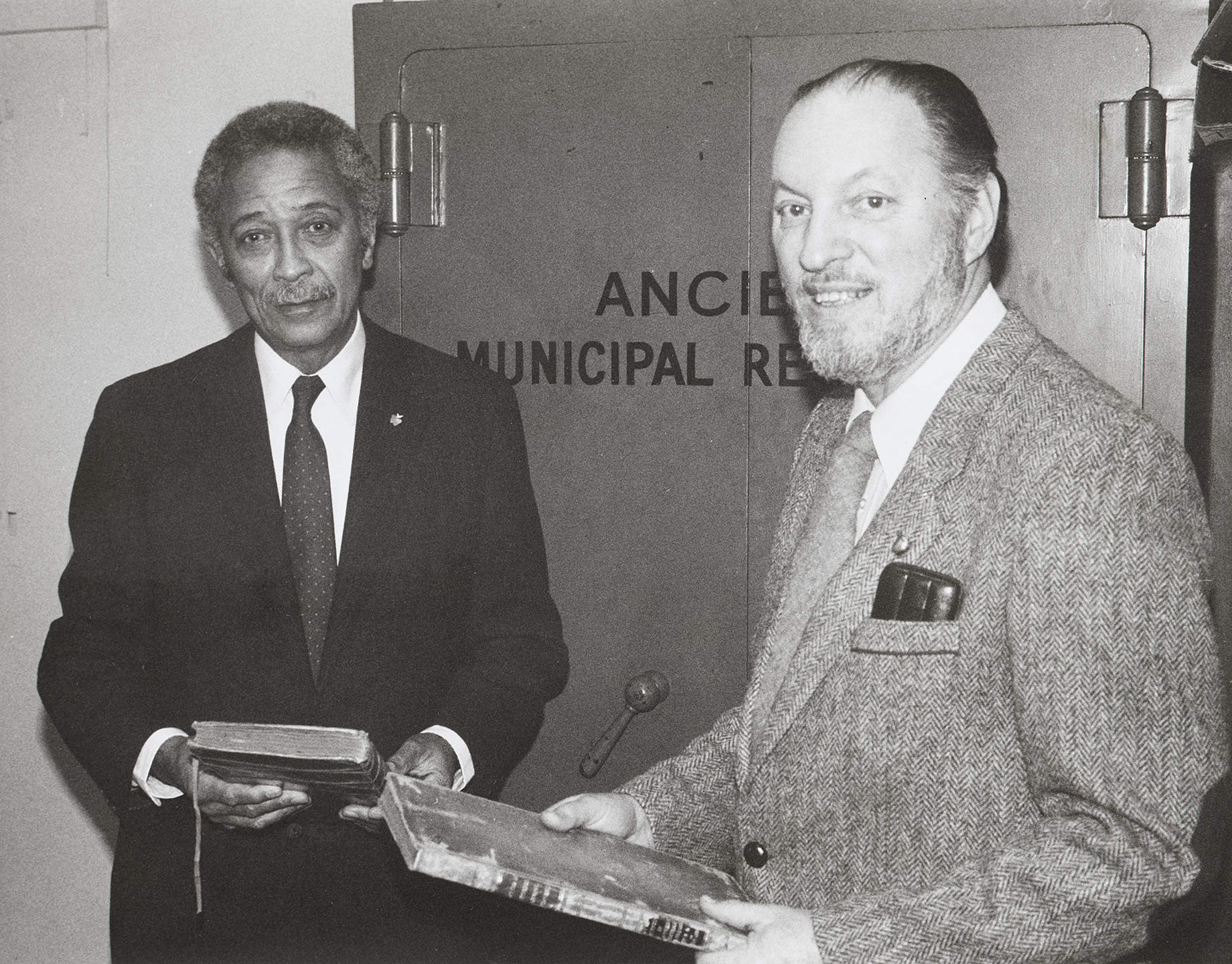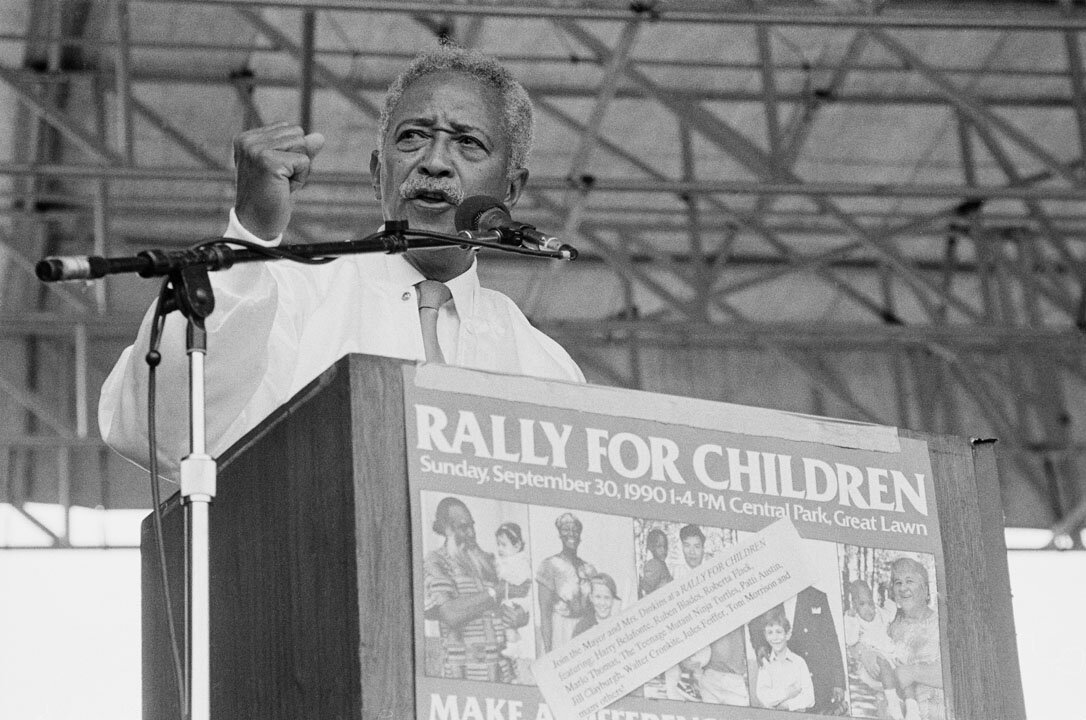David N. Dinkins, 106th Mayor of the City of New York
On January 1, 1990, David N. Dinkins was inaugurated as the 106th Mayor of the City of New York. He was the first African-American elected as Mayor of the City; a job often referred to as the second most challenging in the nation. Born in 1927 in Trenton New Jersey, Dinkins attended Trenton High School, Howard University, and graduated from Brooklyn Law School in 1956. He is a recipient of The Congressional Gold Medal for his service during World War II as a Montford Point Marine in the United States Marine Corps.
After practicing law for several years, Dinkins began his career in public service as a State Assemblyman in 1966. He helped create the Search for Education, Elevation and Knowledge (SEEK) program, which provides low income students with grants and other forms of assistance to increase their ability to succeed in higher education. He served as President of the Board of Elections from 1972-1973, was appointed City Clerk in 1975, and was elected as Borough President of Manhattan in 1985.
In 1989, David Dinkins triumphed over three-term incumbent Mayor Edward Koch for the Democratic-party nomination. He went on to defeat the Republican candidate Rudolph Giuliani in the general election on November 7.
Upon his inauguration, Dinkins faced a severe budget crisis, a faltering economy, private sector job losses, and an escalating crime rate. With a combination of budget cutting measures, and a tax increase, Dinkins overcame a combined deficit of $6.8 billion in fiscal years 1991 and 1992. And he successfully persuaded private businesses to remain in the city – saving more than 35,000 jobs.
In 1990, homicides claimed the lives of nearly 2,200 New Yorkers – the highest in its history – and many involving drugs and/or illegal weapons. Dinkins responded to this upsurge in crime by implementing the Safe Streets, Safe City criminal justice plan – working with NYPD to assign thousands of police officers to patrol neighborhoods. By the end of his term the homicide rate had subsided significantly.
Dinkins’ lifelong commitment to the struggle for racial equality was rewarded when South African leader Nelson Mandela chose New York City as his first stop in the United States after release from prison in 1990. Following Mandela’s visit the Mayor signed into law the most stringent anti-apartheid legislation in the country.
During his term in office, Dinkins addressed issues such as homelessness, AIDS, infant mortality, child welfare, education, housing, and race relations. Tested by the boycott of the Korean grocery store in 1990, the Crown Heights riots in 1991, and the Rodney King verdict in California in 1992, Dinkins struggled to hold his city together – the “gorgeous mosaic of race and religious faith.” He kept libraries open longer, restored $1 billion for school construction, and created the Beacon Schools which encouraged all-year schooling. He established the Communi-care and Managed Medicare programs to give the poorest New Yorkers access to preventive medical care in their communities and committed billions to affordable housing. An unprecedented agreement he negotiated kept the US Open Tennis Championships in New York City for 99 years – a contract that annually generates more revenue than the Yankees, Mets, Knicks and Rangers, combined.
In 1994, he joined Columbia University’s School of International and Public Affairs as a Professor in the Practice of Urban Public Policy. Mayor David N. Dinkins died at his Manhattan home on November 23, 2020.
THE ARCHIVES OF MAYOR DAVID DINKINS
The archival records of the administration of Mayor Dinkins provide comprehensive documentation of New York during a critical period in its history. They total more than five million documents in 150 series and include correspondence, memos, reports, photographs, moving images, and audiotapes.
In addition to the records of Dinkins’ top deputies and assistants, there is material pertaining to many supporting offices such as Operations, Legislative Affairs, Press Office, and Special Projects and Events. It includes numerous constituency offices, among them Afro-Caribbean Affairs, Asian Affairs, Immigrant Affairs, as well as special offices such as the 1990 Census Project, and the NYC District Commission.
https://www.archives.nyc/blog/2020/9/4/thank-you-mayor-dinkins
https://www.archives.nyc/blog/2017/7/20/freedom-tour-nelson-mandela-in-nyc

